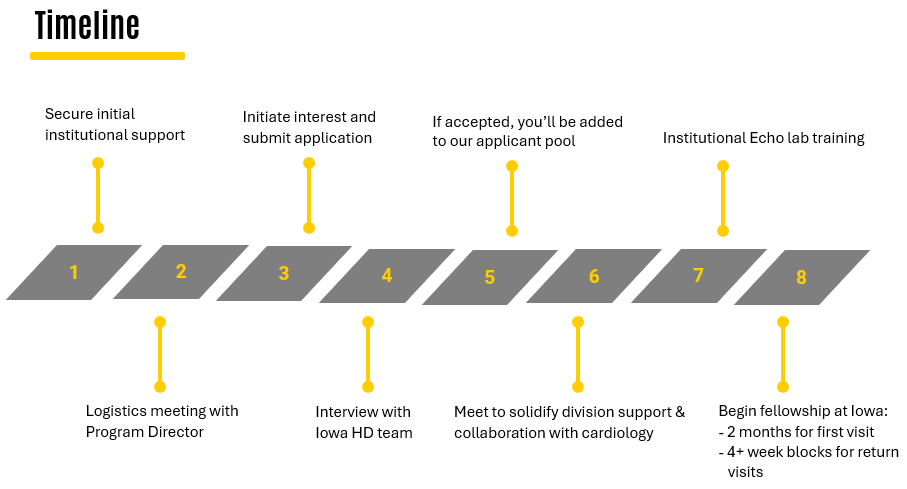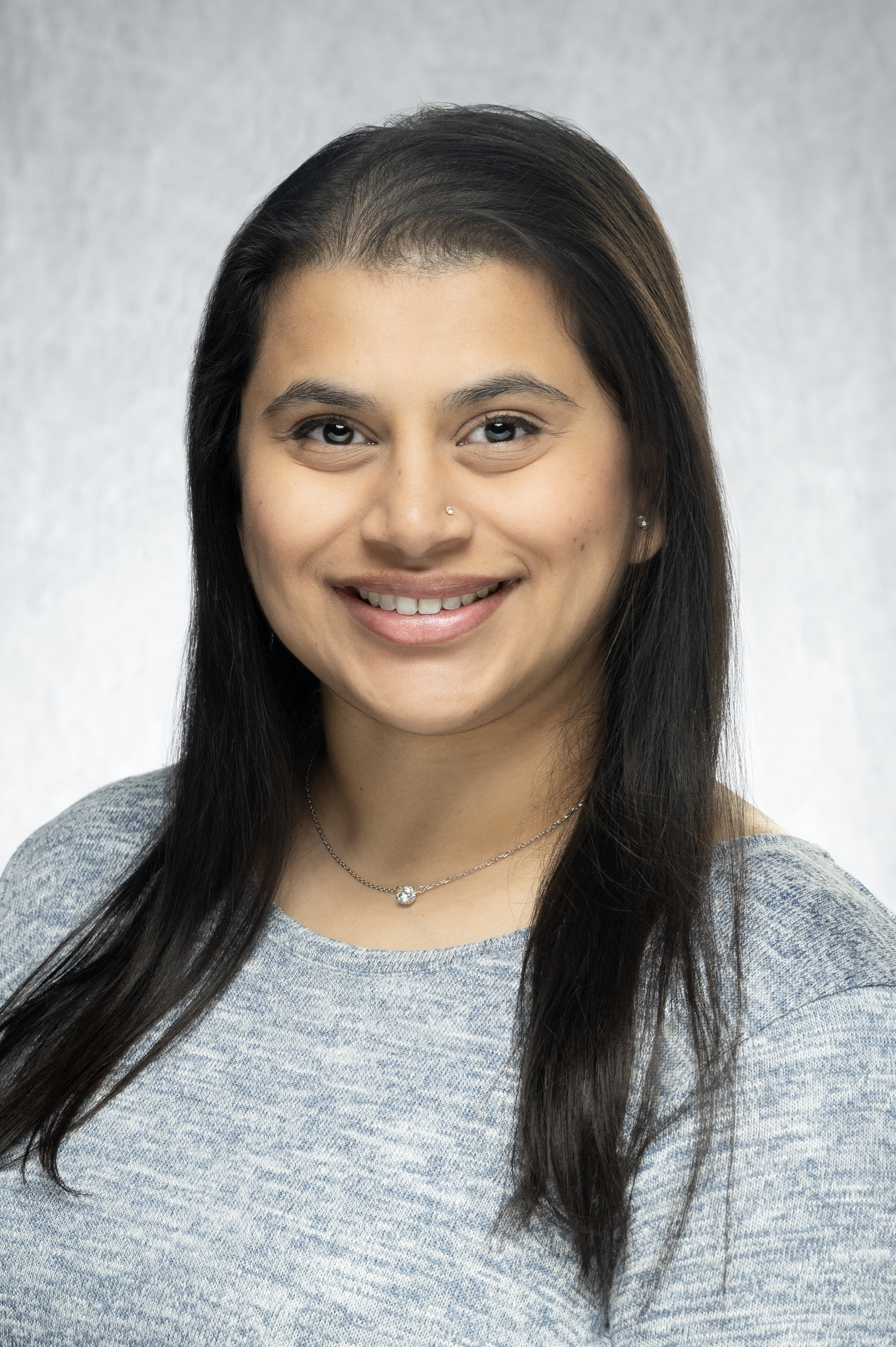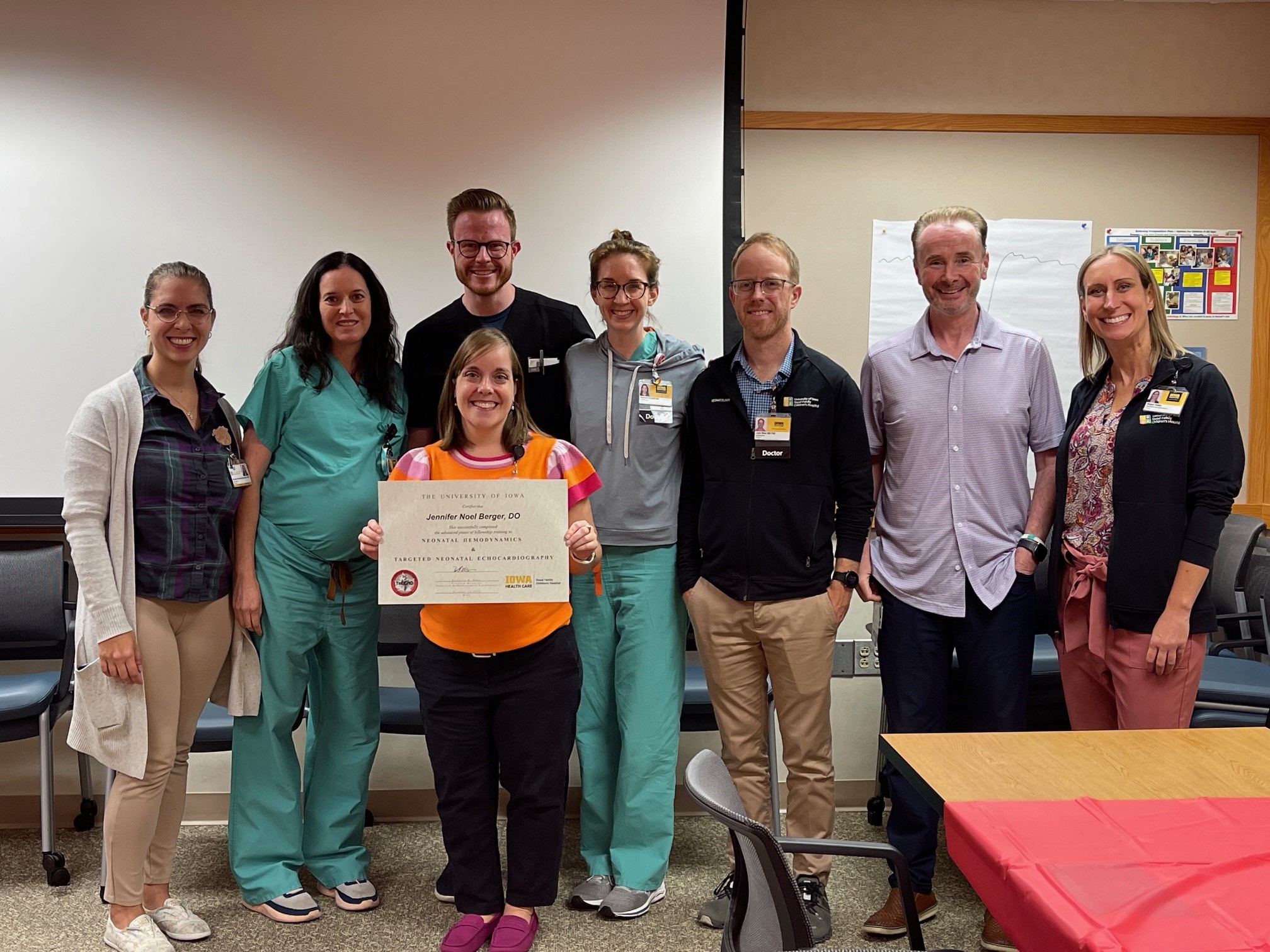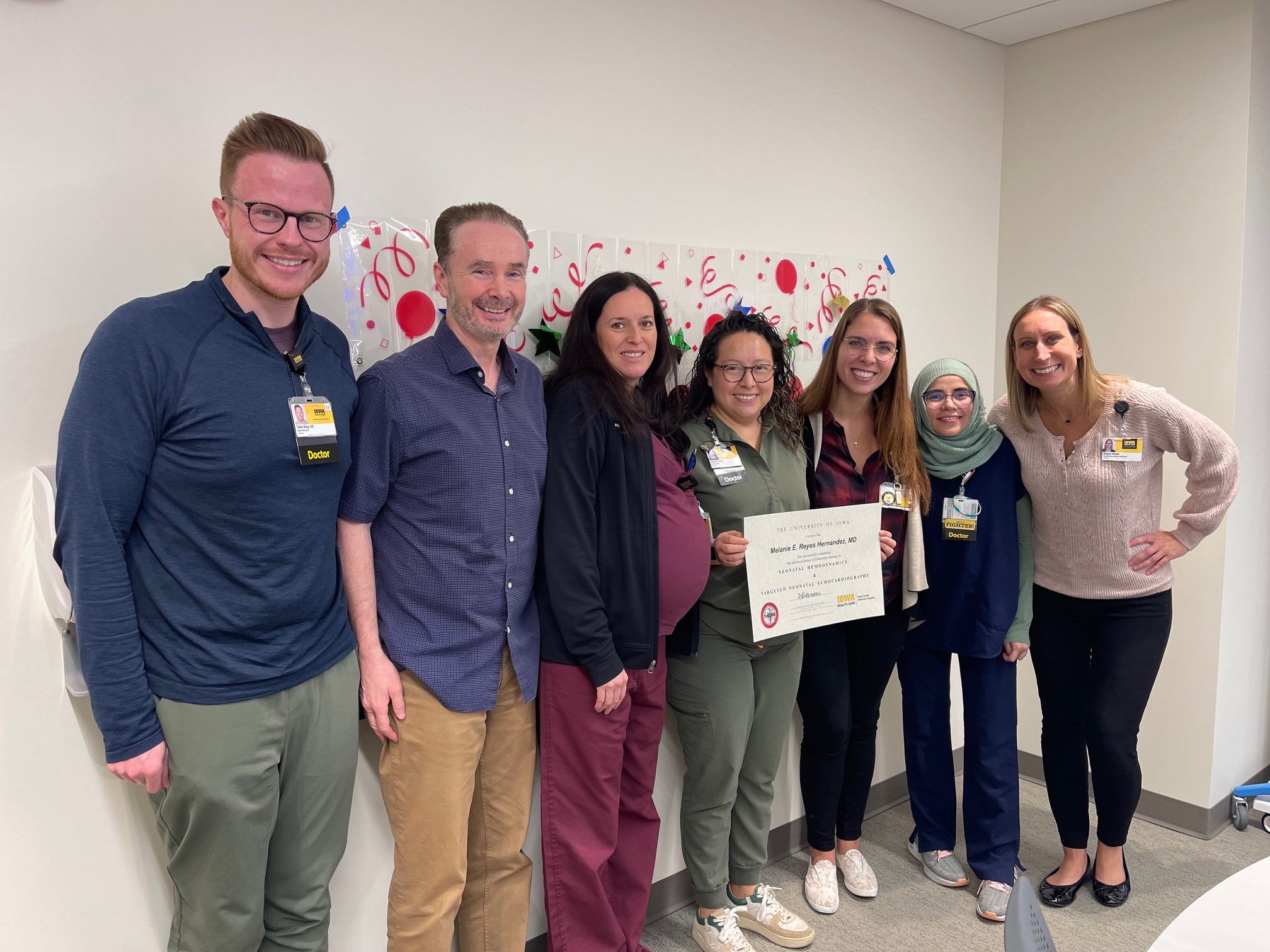The University of Iowa Neonatal Hemodynamics fellowship constitutes the first formalized training program in the United States and is recognized as a world leader. The inaugural Hemodynamics Fellowship position was approved by the Iowa Health Care GME office in 2018 and a second fellowship position was added in 2024 to meet training demands and the escalating volume of high caliber applicants.
Hemodynamics training is critically needed and Iowa is but one of only two US centers currently providing formalized training. It is incumbent of our program to support the growth of the field to ensure we meet the demand of an increased number of trainees wishing to pursue this training, and our obligation to support the establishment of new hemodynamic programs which will provide access of more sick babies to an enhanced level of care.
As a result, our External Fellowship program was introduced in 2019 as an alternative to the traditional GME fellowship pathway. This program allows a faculty member to participate in a collaborative training program between University of Iowa Health Care and their institution. The sponsoring hospital will send their faculty to Iowa, and upon completion of the training, the skills gained will aid in the creation of a Neonatal Hemodynamics clinical program at their home institution.
Basic Requirements
- Institutional support (Neonatology and Cardiology agreements, funding for equipment, etc.)
- Permanent Iowa Medical License
- Immunization record including TdaP and flu shot status
- Malpractice insurance covered by sponsoring institution
- Instructor (or above) faculty member at sponsoring institution (CV)
- External Fellowship Application
Please view our ![]() University of Iowa External Fellowship handout for a summary of requirements and additional information about the program.
University of Iowa External Fellowship handout for a summary of requirements and additional information about the program.
Frequently Asked Questions
When is the application deadline and when will I find out about my acceptance?
The external fellowship application is available year-round and interviews will be conducted on a case by case basis.
At least every fall, the Iowa Hemodynamics Program will contact our applicant pool and update individuals on their status.
The applicant will either a) start the process to begin training or b) receive notification that they continue to be on our prospective training list but that we are unable to offer a spot at that time.
Do the months of training have to be done consecutively?
First visit: 2 month requirement
Additional visits: 4+ week blocks
For optimized training, we prefer the initial visit is at least 2 months long. Additional visits can vary depending on the individual’s needs and progress. If deviation from this is needed, we will discuss on a case-by-case basis.
An external fellow will spend at least 4-6 months at Iowa however this also depends on the frequency and length of the visits as well as how quickly they progress through the HD milestones.
What equipment & support is needed from my institution?
Dedicated echo machine for the hemodynamics program to use
We recommend: GE Vivid E90 or E95
Storage solution for saved scans that allow them to be measured offline and clinically accessible
We recommend: EchoPAC for GE systems (For small/medium sized programs)
Viewpoint (For large sized programs)
Integration of HD consults and TNE orders into EMR
We recommend: Ability for cardiology to overread TNE and have reports visible in EMR
What is needed from my Cardiology Department?
Teaching image acquisition for the entire protocol prior to visiting Iowa
*Identify a point person who will sign off on DOPS
Core group of cardiologists to read/sign off TNE and be familiar with Iowa’s protocol
Point person for collaboration between cardiology and HD when program established
Are there fees associated with this training?
The University of Iowa does not provide a salary for external fellows.
This specialty training requires a $850 fee per month you train in Iowa.
Costs incurred by the applicant include:
- IA Medical License Fees
- Malpractice insurance (if not provided by sponsoring institution)
- Transportation
- Housing
- Food

2025-2026 External Fellow
Dr. Rhucha Joshi
Children's Hospital of Orange County

Congrats to our recent External Fellowship graduates!
Dr. Jennifer Berger
Children's Minnesota


Dr. Melanie Reyes Hernandez
University of Michigan